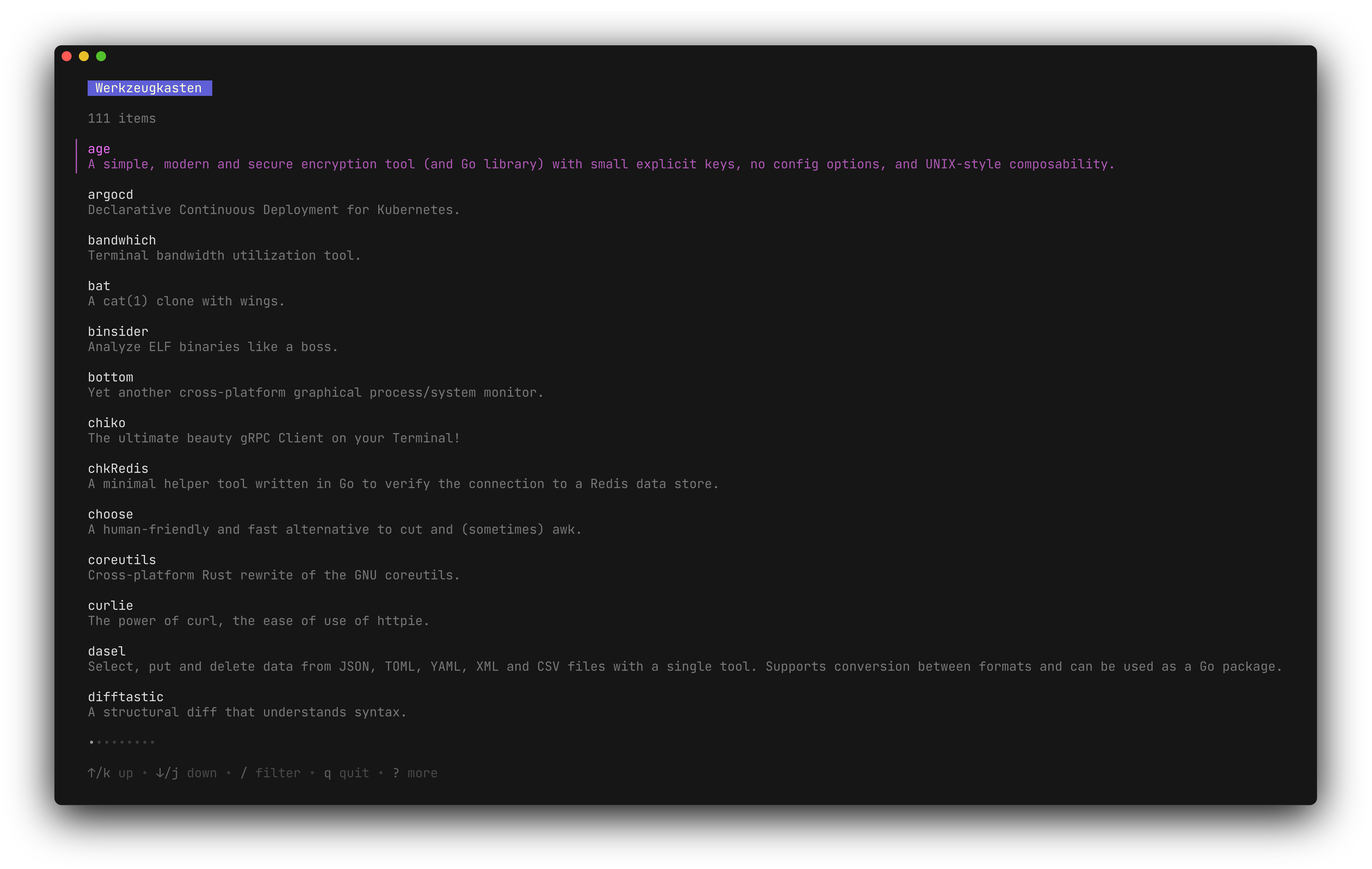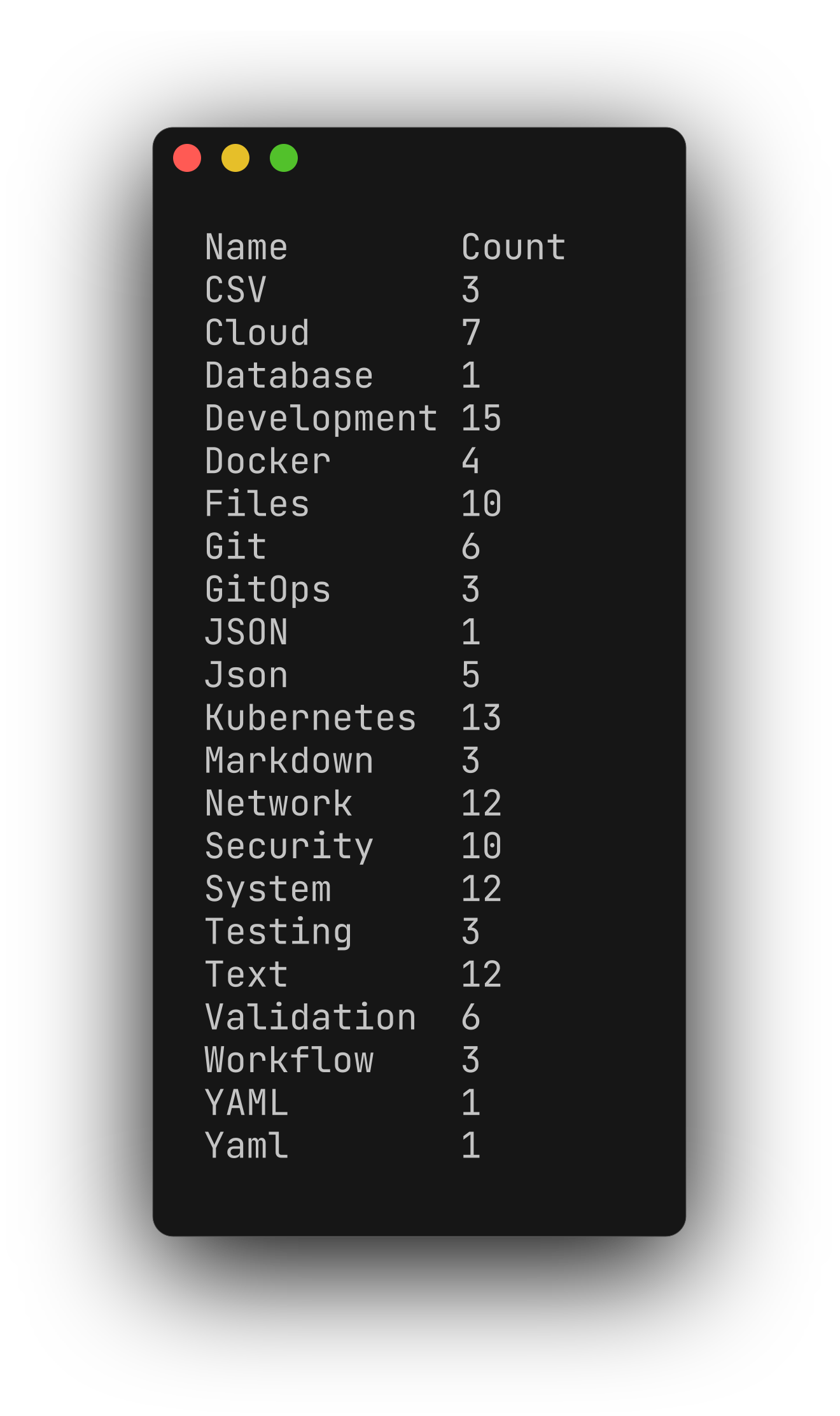From time to time, I need to connect to containers and VMs to troubleshoot them. These systems typically only have the necessary tools for their specific purpose and nothing else. Additionally, there is no root account available, so installing tools through a package manager is not an option. Furthermore, some tools are either not available as a package or the packaged version is outdated.
This is where Werkzeugkasten comes in. You simply need to download the werkzeugkasten binary onto your system, and from that point on, there are no additional requirements, particularly the need for root permissions.
Unfortunately, a tool to download the werkzeugkasten binary is required. It is possible to download files via bash and /dev/tcp only, but I couldn't figure out how to handle the redirect from Github when accessing a release URL.
with curl
VERSION=$(curl -s https://api.github.com/repos/allaman/werkzeugkasten/releases/latest | grep tag_name | cut -d '"' -f 4)
curl -sLo werkzeugkasten https://github.com/Allaman/werkzeugkasten/releases/download/${VERSION}/werkzeugkasten_${VERSION}_$(uname -s)_$(uname -m)with wget
VERSION=$(wget -qO - https://api.github.com/repos/allaman/werkzeugkasten/releases/latest | grep tag_name | cut -d '"' -f 4)
wget -qO werkzeugkasten https://github.com/Allaman/werkzeugkasten/releases/download/${VERSION}/werkzeugkasten_${VERSION}_$(uname -s)_$(uname -m)chmod +x werkzeugkasten
./werkzeugkastenYou could also integrate werkzeugkasten in your golden (Docker) image.
Werkzeugkasten is basically a wrapper around the excellent eget that does the heavy lifting and is responsible for downloading the chosen tools. Eget itself is downloaded as binary via net/http call and decompression/extraction logic.
The awesome charmbracelet tools bubbletea, glamour, and lipgloss are used for a modern look and feel. By default, the latest release of a tool is downloaded (see Configuration).
Werkzeugkasten is not intended to replace package managers (such as apt, brew, ...) or configuration management tools (such as Ansible, ...).
❯ werkzeugkasten -help
Usage: werkzeugkasten [flags]
Flags:
-categories
Print all categories and tool count
-category string
List tools by category
-debug
Enable debug output
-dir string
Where to download the tools (default ".")
-help
Print help message
-tool value
Specify multiple tools to install programmatically (e.g., -tool kustomize -tool task)
-tools
Print all available tools
-update
Self-update
-version
Print version
Werkzeugkasten supports an interactive mode and a non-interactive mode.
-
werkzeugkastenwill start in interactive mode where you select your tools you want to install from a searchable list. -
werkzeugkasten -tool age -tool kustomizewill download age and kustomize. -
werkzeugkasten -toolswill print all available tools. -
werkzeugkasten -categorieswill print all available categories. -
werkzeugkasten -category networkwill print all available tools in the "network" category.
Besides CLI flags, further configuration is possible with environment variables.
Set a tool's version/tag explicitly:
export WK_<TOOL_NAME>_<TAG>=1.33.7
export WK_KUSTOMIZE_TAG=v5.3.0`Set a GitHub token to get more than the 60 API calls per hour limit:
export EGET_GITHUB_TOKEN=<token>








